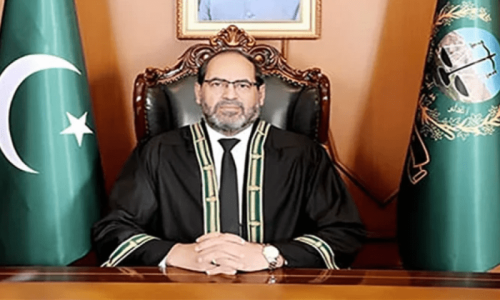NEITHER China nor the United States could have been thrilled by Chen Guancheng’s decision to seek refuge at the US embassy in Beijing on the eve of their Strategic and Economic Dialogue.
US Secretary of State Hillary Clinton and Treasury Secretary Timothy Geithner were scheduled to arrive in the Chinese capital yesterday, but were preceded earlier in the week by Assistant Secretary of State Kurt Campbell.
Although he was photographed in a Beijing hotel, a blanket of secrecy surrounded Campbell’s arrival on Sunday, a week after Chen dramatically escaped house arrest in Donshigu in Shandong Province, made his way to Beijing and eventually decided that the American mission would be his safest bet.
As of yesterday, neither the US nor China had officially acknowledged his presence at the US embassy.
Although it is claimed that representations requesting his freedom had periodically been made, until a couple of weeks ago Chen was hardly an international cause célèbre in the same league as the outspoken artist Ai Weiwei or the 2010 Nobel Peace Prize winner Liu Xiaobo.
Blind since birth, Chen had got himself into trouble with local authorities in 2005 by taking up cudgels on behalf of the victims of a relentless sterilisation campaign.
In 2006, the largely self-trained lawyer was sentenced to more than four years in prison on the ostensibly absurd charges of destroying property and disrupting traffic. He remained under effective house arrest, though, even after his jail term ran out, and has alleged that up to 100 members of the security services were deployed to keep him isolated and immobile.
Analysts have been comparing his case with that of Fang Lizhi, a dissident astrophysicist who sought — and was granted — American asylum in the wake of the Tiananmen Square massacre in 1989, but was compelled to spend 13 months hidden in the US embassy while officials from both sides deliberated over his fate.
Fang, who had been accused by Deng Xiaoping of masterminding the Tiananmen uprising, was eventually allowed to travel abroad for ‘medical treatment’. He died last month in Tucson, Arizona. Chen is a far less prominent dissident, and what potentially complicates matters is his reported desire to remain in China. He apparently believes the nation is on the cusp of dramatic change, and shortly before turning up at the US embassy a statement from him was posted on the Internet requesting the premier, Wen Jiabao, to take measures against the abuse of his family.
It has since been reported that certain family members as well as those who assisted in Chen’s flight from illegal imprisonment have themselves been taken into custody.
The extraordinary lengths to which the Chinese authorities are prepared to go in the ostensible interests of maintaining ‘stability and harmony’ underline some of the contradictions unleashed by efforts to reconcile strict political authoritarianism with market forces at the economic level.
The Chinese economy’s phenomenal growth in recent decades bears testimony to a degree of success that no one could have predicted in the late 1970s, when Deng, the Zhou Enlai protégé, sporadically derided (not entirely inaccurately, it must be said) as a ‘capitalist roader’, triumphed in the power struggle following the old guard’s demise. Despite occasional expressions of reformist intent, however, it has been accompanied by unrelenting political repression — which makes China a particularly attractive proposition for foreign investors, as it combines an effectively endless supply of cheap labour with little risk of unrest among the workers.
The Communist Party leadership couldn’t possibly be unaware, though, that deepening disparities of wealth could ultimately provoke an explosive reaction.
Yet its ability to pre-empt such an explosion is questionable. The case of Bo Xilai points towards the tendency of local party bosses in the vast country to establish veritable private fiefdoms.
Until he was toppled last month, Bo, the Chonqing party secretary who had been hailed for leading a crackdown against criminality and corruption, was spoken of as a probably candidate for the powerful standing committee of the Communist Party politburo later this year, when the current leadership is expected to make way for a new generation.
His downfall was partially accounted for by his wife’s alleged role in the death of a British businessman, Neil Heywood.
The charge appears to have been substantiated by Chonqing’s former police chief, Wang Lijun, who in February sought asylum at the US consulate in Chengdu but eventually ‘agreed’ to surrender to the Beijing authorities (and hasn’t been seen since then).
Apparently, it wasn’t so much the Heywood murder that precipitated Bo’s collapse as the discovery — thus far unacknowledged by Beijing — that the local leader had been systematically wiretapping his colleagues and superiors.
According to a report in The New York Times, he even listened in when President Hu Jintao spoke to a senior anti-corruption official who was visiting Chonqing.
Bo publicly criticised the growing gap between rich and poor and encouraged sing-alongs that harked back to the Cultural Revolution, while he and his family members and cronies were busy amassing wealth.
Heywood had been associated with the family for a long time, and is said to have been instrumental in enabling some of this wealth to be stashed away overseas.
It has been conjectured that he sealed his fate when he demanded too big a cut from Bo’s wife, Gu Kailai — once described as China’s Jackie Kennedy.
The case has been described as China’s Watergate, although the cover-up will inevitably be a great deal more successful in a country where the state goes to great lengths to maintain curbs on information and discourse, and systematically penalises opinions that diverge from the party line.
It routinely censors the Internet, but may well be fighting a losing battle on that particular front.
China’s economy may well overtake that of the US before the end of the decade, but the People’s Republic ultimately cannot live up to its name without giving the people a meaningful say in how they are governed.
A capitalist edifice raised on socialist foundations cannot indefinitely endure. Sooner or later, change will come — and, at least in the short run, it may not be for the better. The only question is whether it can be accomplished without lapsing into chaos.











































